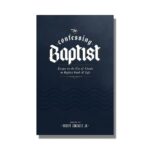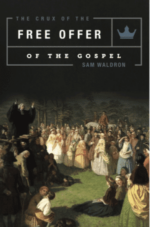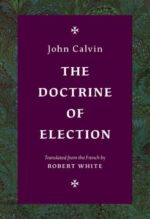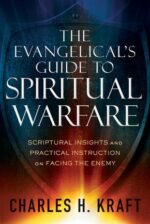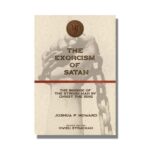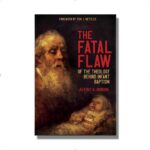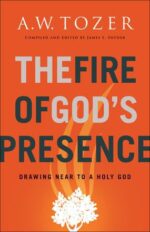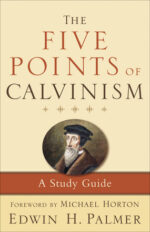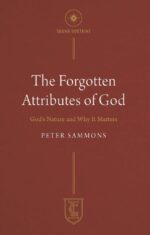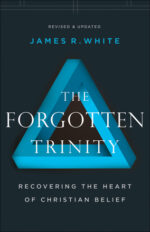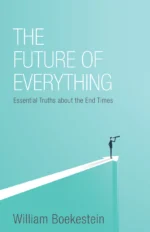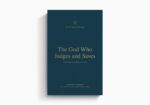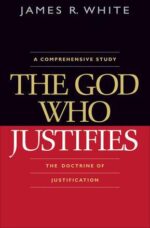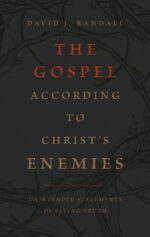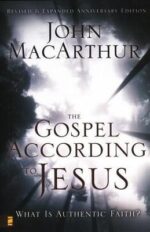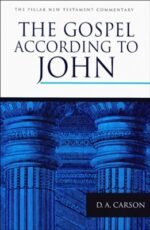In this deep, biblical study of God’s nature, Peter Sammons focuses on attributes of God that are less well-known, such as aseity and impassibility, as well as those that are less understood by believers, such as spirituality and immutability. Insightful and challenging.
-
The Confessing Baptist (Robert Gonzales Jr.)
$19.00A growing number of Baptist churches today are rediscovering their confessional heritage. The contributors to this book welcome this rediscovery.
$33.00 -
The Crux of the Free Offer of the Gospel (Sam Waldron)
$12.00Does God have a genuine desire for the salvation of all men? In The Crux of the Free Offer, Sam Waldron provides a scriptural and historical analysis of the Well-Meant Offer of the Gospel. Waldron not only provides a biblical defense of the Well-Meant Offer but he also looks at many of the important implications of this doctrine, shows the way the Reformed confessions affirmed it, answers important theological and soteriological objections, and applies this doctrine to the Christian and the preacher.
$15.00 -
The Doctrine of Election (John Calvin)
$24.95When Calvin says that he would not have spoken of election had Scripture not led the way, we need not doubt his word. If he defends the doctrine with vigour, it is because it runs as an unbroken thread through both Old and New Testaments. Like the doctrines of providence, atonement and the new birth, it is a doctrine of sovereign grace.
Calvin did not invent election: it is a doctrine which belongs to the universal church. Its importance for him lies in the fact that it anchors the work of redemption, not in our feeble powers of will, but in God’s inexplicable love for sinners, and it traces that work to a determination freely made in heaven before the world began.
The present volume offers a variety of sources, newly translated from the French, which throw fresh light on Calvin’s doctrine of election. In place of his more formal works such as the Institutes from which the doctrine is usually derived, texts have been selected which were intended for oral delivery to a largely non-specialist audience. The tensions inherent in the doctrine, such as God’s mercy versus his justice, are honestly acknowledged and answered. Throughout, appeal is made not to philosophical speculation but to God’s revealed word. To depart from Scripture, the Reformer holds, is to enter a labyrinth from which there is no way out.
There is no hint of bookishness in the texts presented here. This is theology for every man – clear, comprehensive and rich in practical application. And it leads, as all good theology should, to the praise of God’s glory.
$27.00 -
The Essential Andrew Murray Collection (Andrew Murray)
$15.95Three Classic Andrew Murray Books in One Wisdom-Filled Volume
The powerful writings of Andrew Murray, the nineteenth-century minister and author, still inspire today.
· In Humility, Murray calls all Christians to turn from pride, empty themselves, and study the character of Christ, who will then fill them with His grace. It is often called the best work ever written on the topic.
· Abiding in Christ invites you to listen to words from Scripture, read a daily meditation, pray, and surrender yourself anew to Christ. This thirty-one-day devotional is as timely now as it was in 1895 when it was first published.
· Living a Prayerful Life outlines the way to overcome prayerlessness, which Murray believed was the greatest roadblock to spiritual growth. He offers inspiring and practical guidelines for becoming a prayer warrior, including examples from the prayer lives of the apostle Paul, George Müller, and Hudson Taylor.The wisdom in these pages will encourage and equip you to live a life of humility, surrender, and prayer, bringing you closer to the One who created you and longs to be with you.
Each title in this collection has been edited for today’s reader.
$17.99 -
The Evangelical’s Guide to Spiritual Warfare (Charles H. Kraft)
$13.60Are you aware of the spiritual battle being waged around you today?
The truth is that although spiritual warfare is a major theme in the Bible, many of us gloss over it–or ignore it completely. But 80 percent of the synoptic gospels addresses the battle with evil spirits, and Jesus and His disciples set a clear example for believers. We cannot afford to practice a powerless Christianity in a fallen world.
In this essential, accessible resource, former evangelical seminary professor and missionary Charles Kraft helps you find your footing in the spiritual battle. Based on a solid biblical foundation and on decades of ministry experience, this book will help you:
· Differentiate between myths and truths about spiritual warfare
· Recognize the everyday battles taking place around you
· Learn what demons really are and what they actually do
· Understand the rules for engaging the enemy
· Achieve victory in daily battles with the help of the Holy SpiritDon’t let fear keep you from engaging the spiritual forces at work around you. Some problems can’t be overcome in any other way.
$17.00 -
The Exorcism of Satan (Joshua P. Howard)
$24.49In The Exorcism of Satan: The Binding of the Strong Man by Christ the King, Joshua P. Howard contends that Satan has been exorcised in this age by the work of Christ in His first coming. He examines the theme of satanic exorcism in the New Testament while contributing to the doctrine of satanic defeat within a whole-Bible eschatological perspective. Though Christ is presently triumphant and victory has been decisively achieved, suffering and evil both exist in this age, as the final victory is yet to come. Howard proposes that Christ’s triumphant first coming achieved a satanic exorcism in this age that has produced cosmic eschatological consequences that directly affect believers’ experience in this age and the age to come.
$29.95 -
The Failure of Natural Theology: A Critical Appraisal of the Philosophical Theology of Thomas Aquinas (Jeffrey D. Johnson)
$19.95Aristotle’s cosmological argument is the foundation of Aquinas’s doctrine of God. For Thomas, the cosmological argument not only speaks of God’s existence but also of God’s nature. By learning that the unmoved mover is behind all moving objects, we learn something true about the essence of God—principally, that God is immobile. But therein lies the problem for Thomas. The Catholic Church had already condemned Aristotle’s unmoved mover because, according to Aristotle, the unmoved mover is unable to be the moving cause (i.e., Creator) and governor of the universe—or else he would cease to be immobile. By seeking to baptize Aristotle into the Catholic Church, however, Thomas gave his life to seeking to explain how God can be both immobile and the moving cause of the universe. Thomas even looked to the pantheistic philosophy of Pseudo-Dionysius for help. But even with Dionysius’s aid, Thomas failed to reconcile the god of Aristotle with the Trinitarian God of the Bible. If Thomas would have rejected the natural theology of Aristotle by placing the doctrine of the Trinity, which is known only by divine revelation, at the foundation of his knowledge of God, he would have rid himself of the irresolvable tension that permeates his philosophical theology. Thomas could have realized that the Trinity alone allows for God to be the only self-moving being—because the Trinity is the only being not moved by anything outside himself but freely capable of creating and controlling contingent things in motion.
$35.00 -
The Fatal Flaw of the Theology Behind Infant Baptism (Jeffrey D. Johnson)
$28.75The Fatal Flaw exposes the inconsistencies of the theology behind infant baptism. Rather than rehashing the familiar arguments against infant baptism, this work seeks to undercut its very foundation. What is the theological system which undergirds infant baptism and where does this system come unraveled? This work answers these questions by explaining the distinction in the nature of the old and new covenants and their often misunderstood relationship with one another. This critical discussion of the continuity and discontinuity of the covenants is thoroughly explored in this book. To understand the biblical connection between the covenants, it is vital to first understand the dual nature of the Abrahamic Covenant. What is the relationship between Abraham and Moses, Abraham and Christ, and Moses and Christ? The debate of continuity and discontinuity between the old and new covenants cannot be properly solved until the intended nature of the Abrahamic Covenant is fully comprehended.
$31.95 -
The Fire of God’s Presence: Drawing Near to a Holy God (A.W. Tozer and James L. Snyder)
$12.95What Would It Be Like to Encounter God Face-to-Face?
Have you ever truly experienced God’s presence? If not, what do you think is getting in the way?
When Moses met God at the burning bush, it changed his life and his perception of who God is. In that burning-bush moment, he began to understand and appreciate the sacredness of worship. Proper worship has to fit the one we are worshiping, so if we are worshiping God, we must do it on His terms. This means having a spirit of reverence and holiness–like Moses taking off his shoes and kneeling before Him.
The bush’s fire did not frighten Moses, but rather it poured the essence of sacredness into his life. It gave him an experience of God’s presence he had never had before. Let this book teach you how, like Moses, to encounter God afresh.
$14.99 -
The Five Points of Amillennialism (Jeffrey D. Johnson)
$8.95The Five Points of Amillennialism maintains that a right view of end times is founded upon a right view of the “bigger picture,” the storyline of Scripture. The grand narrative of the Bible displays that the Abrahamic covenant, Davidic covenant, New Covenant, and Second Coming all find their fulfillment in Jesus Christ. He is the key that holds together the various threads of Scripture—and he alone is the key to properly understanding and making sense of the often dizzying, complex maze of “final things.” Rather than an offering of an endless series of charts, understanding amillennialism involves five simple points.
$10.00 -
The Five Points of Calvinism (Edwin H. Palmer)
$13.95Using the classic TULIP acronym (Total depravity, Unconditional election, Limited atonement, Irresistible grace, and Perseverance of the saints), this primer on the five points of Calvinism is perfect for students and laypeople alike. Using the Scriptures from which they are drawn, Edwin H. Palmer analyzes each point and explains them in accessible language. Helpful discussion questions follow each chapter, making this book ideal for classes or study groups. This important resource also includes a new foreword by Michael Horton and relevant historic catechisms and confessions.
$15.00 -
The Forgotten Trinity, Revised and Updated Edition (James R. White)
$13.99Discover the Living Truth of a Foundational Christian Belief
The Trinity is one of the most important teachings of the Christian faith. It defines God’s very essence and describes how he relates to us.
In this book, Dr. James R. White offers a concise, understandable explanation of what the Trinity is and why it matters. While refuting the distortions of God presented by various cults, Dr. White shows how understanding this teaching leads to renewed worship and a deeper understanding of what it means to be a Christian. And amid today’s emphasis on the renewing work of the Holy Spirit, The Forgotten Trinity is a balanced look at all three persons of the Trinity.
May this book deepen your understanding of this important doctrine while also drawing you closer to the triune God himself.
“No doctrine is more fundamental to the Faith than the Trinity. And there is no more brief, clear, biblical, and practical explanation of the Trinity than in these pages.”–DR. NORMAN L. GEISLER, Christian apologist and author of Systematic Theology
“White’s clear argument demonstrates that the historic Christian doctrine of the Trinity is fully and inescapably biblical. The refutation of Jehovah’s Witnesses and Mormons is very helpful.“–DR. J.I. PACKER, retired professor, Regent College
“The Trinity is a doctrine where error is especially deadly. James White superbly establishes the biblical basis of trinitarianism, examining its nuances and its place in church history. His lucid presentation will help layperson and pastor alike. Highly recommended.”–DR. JOHN MACARTHUR, senior pastor, Grace Community Church
James Robert White (DMin, Columbia Theological Seminary) is the director of Alpha and Omega Ministries, an evangelical reformed Christian apologetics organization based in Phoenix, Arizona. He is the author of more than twenty books, including What Every Christian Needs to Know About the Qur’an and The God Who Justifies. James and his wife live in Phoenix, Arizona.$16.99 -
The Freedom and Power of Forgiveness (John MacArthur)
$18.99Few concepts are more basic to Christianity-or more important to a Christian’s personal and spiritual well-being-than forgiveness. Yet in an age in which it has become fashionable to “forgive yourself” rather than to forgive others, can our modern ways of understanding guilt, blame, mercy, and justice be reconciled with Jesus’ teaching?
Pastor John MacArthur begins The Freedom and Power of Forgiveness by examining the doctrine of the atonement, the basis for any teaching on forgiveness. He then answers some common questions about forgiveness, such as: Why are we supposed to seek God’s forgiveness if he has already justified us? How should we handle repeat offenses against us? When is restitution appropriate? MacArthur then presents potent, relevant biblical principles of forgiveness.
$23.99 -
The Future of Everything: Essential Truths about the End Times (William Boekestein)
$13.95All of us think about the end times. When we reflect on what will happen not only when we die but when this present age ends, some combination of ideas, images, hopes, and fears floods our minds.
In The Future of Everything, William Boekestein encourages us to allow our thoughts on the end times to be guided by God’s Word. While combing the Scriptures to find direction related to subjects like death, the millennial kingdom, the return of Christ, the resurrection, judgment, heaven, and hell, Boekestein helps us cultivate a vision for the future that impacts our walk before God’s face today.
$16.00 -
The God Who Judges and Saves: A Theology of 2 Peter and Jude (Matthew S. Harmon)
$16.95An Introduction to the Theology of 2 Peter and Jude from Matthew S. Harmon
Even though Peter and Jude wrote their canonical letters almost 2,000 years ago, the church today still faces similar challenges as their original readers. What do these short, overlooked books have to teach Christians today about God, humanity, and God’s redemptive plan?
In this addition to the New Testament Theology series, Matthew S. Harmon examines the unique themes of 2 Peter and Jude as well as their common ground, addressing topics such as false teaching, God’s authority, and the new heavens and the new earth. Analyzing the historical and biblical context of both books, Harmon helps readers understand how these key themes apply to them today—giving Christians comfort and motivation in the face of serious challenges and opposition to the gospel.
$21.99 -
The God Who Justifies (James R. White)
$24.30Once the core of the Reformation, the church today often ignores or misunderstands this foundational doctrine. White calls believers to a fresh appreciation of, understanding of, and dedication to the great doctrine of justification and then provides an exegesis of the key Scripture texts on this theme.
$27.00 -
The Gospel According to Christ’s Enemies (David J. Randall)
$12.80During his earthly life Jesus had many critics and enemies who sought to discredit him and sometimes trap him in his own words. They said, for example, that he had threatened to destroy the temple, that he was a blasphemer and that he acted in league with the devil. On one occasion some religious leaders ‘grumbled, saying, “This man receives sinners”’ (Luke 15:1). However, what they intended as an attack gives expression to gospel truth – Jesus did and does welcome sinners; as the apostle Paul wrote, ‘The saying is trustworthy and deserving of full acceptance, that Christ Jesus came into the world to save sinners’ (1 Tim. 1:15). The Gospel According to Christ’s Enemies looks at such attacks in Scripture and also considers contemporary attacks on Christianity which express truths that their speakers do not intend. The book leads us to the gospel according to Jesus Christ himself.
$16.00 -
The Gospel According to Jesus (John MacArthur)
$19.99What did Jesus mean when he said, “Follow me”? In this 20th anniversary edition of his classic work, MacArthur warns against “easy believism,” explains his understanding of biblical faith and works, emphasizes the cost of discipleship, and reinforces his conviction that there’s no eternal life without surrender to the lordship of Christ. Includes a new chapter!
$26.99 -
The Gospel According to John (D. A. Carson)
$45.95In this solid evangelical commentary on John’s Gospel, a respected Scripture expositor makes clear the flow of the text, engages a small but representative part of the massive secondary literature on John, shows how the Fourth Gospel contributes to biblical and systematic theology, and offers a consistent exposition of John as an evangelistic Gospel. The comprehensive introduction treats such matters as the authenticity, authorship, purpose, and structure of the Gospel.
$52.99

